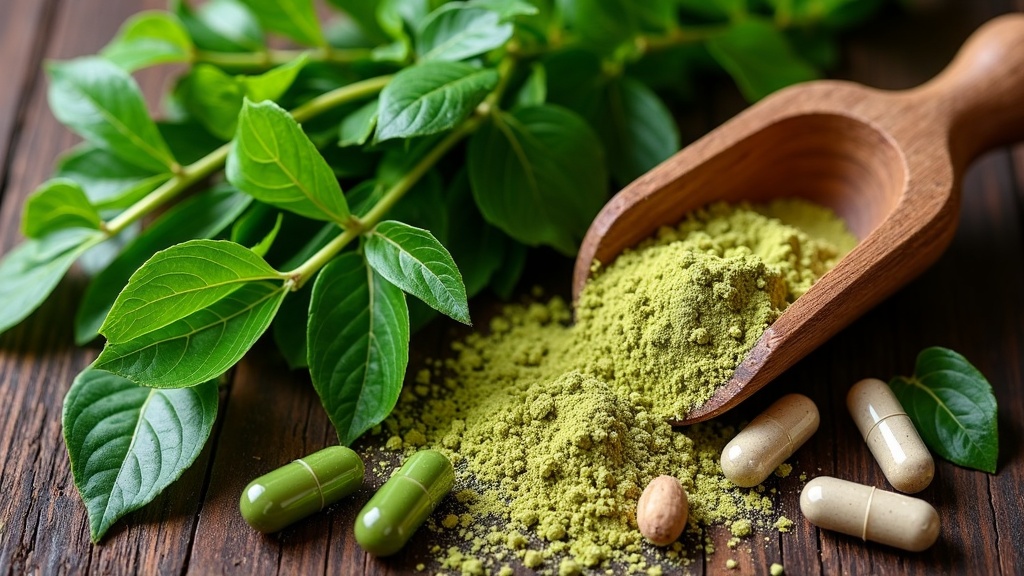If digestive drama like bloating, gas, or stubborn constipation keeps getting in the way of feeling good, I’ve totally been there. Gut troubles show up for all sorts of reasons: stress, rushed meals, processed foods, or that seemingly innocent snack binge. Moringa Magic Capsules have turned things around for me and many others in the gut health game. This nutrient-dense superplant quietly does its thing, working with your body to clear up digestive slowdowns without wild side effects or a milelong ingredient list.

Why Gut Health Matters (and Why So Many Struggle)
Your gut does a lot more than just handle your lunch. It transforms nutrients, boosts immune strength, and even impacts your mood. But when things get out of whack—IBS flares, bloating, weird food intolerances—it can feel like everything’s off. Processed meals, low fiber, and daily stress pile up on your digestive system fast. Over time, that discomfort can really drag you down.
Moringa Magic Capsules are packed with a powerful mix of fiber, plantbased antimicrobials, antioxidants, and prebiotics. Unlike single-ingredient fixes, these capsules actually go after different gut problems at the root. I see them as a daily reset for my digestion, and I’m definitely not the only one who’s noticed less bloat and more comfort.
How Moringa Supports Digestion and Bloating: The Inside Scoop
- Natural Fiber for Regularity: Moringa leaves are loaded with both soluble and insoluble fiber. Soluble fiber feeds friendly gut bacteria and helps stool stay soft, so things pass smoothly. The insoluble fiber bulks up stool, fights constipation, and helps things move along without major straining.
- Antimicrobial Compounds: Moringa isn’t just about fiber. It’s packed with compounds like quercetin and isothiocyanates. These go after harmful bacteria (think E. coli and H. pylori) and yeast (like Candida) that can cause belly problems for a lot of people. I’ve noticed fewer bouts of rolling, gassy discomfort since making moringa a habit.
- Feeds the Good Guys – Prebiotic Power: Most people reach for a probiotic to build up gut flora, but forget that healthy bacteria need something to eat. Moringa’s fiber and polyphenols act as a food source for probiotics. That means they help good strains like Lactobacillus and Bifidobacteria multiply, crowding out the troublemakers and boosting balance.
- Packed with Antioxidants and Anti-Inflammatory Nutrients: Inflammation in your gut shows up as pain, sensitivity, or strange reactions to everyday foods. Moringa is famous for its vitamin C, beta carotene, chlorogenic acid, and over 35 other antioxidants. These actively support gut lining repair and help the digestive tract calm down, so IBS and leaky gut symptoms take a back seat.
Comparing Moringa to Other Gut Health Options
Before I found moringa, I bounced around between fiber powders, probiotics, and the occasional harsh laxative. Here’s what stood out for me with Moringa Magic Capsules:
- Allinone Boost: Traditional fiber supplements like psyllium only add bulk. Probiotics need the right environment to stick around. Moringa supports both sides: strengthening the gut lining and making it easier for friendly bacteria to thrive.
- No Harsh Chemicals: Pharmacies are full of products designed to force your bowels to move, but they can feel rough on sensitive stomachs. Moringa works without causing cramps, dependency, or sudden urgency.
- Real Food Source: Unlike synthetic supplements, moringa brings its benefits in a wholefood format, so all the plant nutrients are there to work together, just like in nature.
Who Gets the Biggest Gut Benefits from Moringa?
- Bloating After Meals: Anyone who feels puffy or full even after normal portions can notice lighter digestion and less water retention with steady moringa use.
- Slow or Unpredictable Digestion: Regular users often talk about more reliable, satisfying trips to the bathroom without using harsh laxatives.
- IBS and Sensitive Stomachs: Calming plant antioxidants and natural fiber help tone down abdominal pain, cramps, and bathroom emergencies.
- Candida or SIBO Woes: Many gut issues start when “bad” bacteria or yeast take over. Moringa’s plant compounds can help swing the balance back toward normal.
- Antibiotic Recovery: Anytime antibiotics wipe out good bacteria, moringa’s prebiotics help rebuild that healthy microbiome foundation.
How to Use Moringa Magic Capsules for Gut Health
Adding moringa to your routine is easy. Here’s how I make it work best for me (and what I usually recommend):
- Take one to two capsules daily, usually with breakfast or lunch. Food helps your system absorb the nutrients even better.
- Drink an extra glass or two of water. Since moringa’s fiber bulks up, hydration is important for smooth results.
- Pair with your favorite daily probiotic or fermented foods (like yogurt or kimchi) to really give your gut the fuel it loves.
- Stick with it! Gut support isn’t always instant, but after 2–3 weeks, you’ll likely feel lighter and less sluggish.
What Changes to Expect and When
- Week 1–2: Less bloat, gentler digestion, and more predictable bathroom visits. First, you’ll notice that postmeal heavy feeling start to fade.
- Week 3–4: More stable moods, better absorption of nutrients, and a real drop in unnecessary gas or discomfort.
- Month 2 and Beyond: Steady, strong digestion that makes you feel like you actually get max benefit from your food. Better regularity, ease, and a more resilient gut are all possibilities.
I recommend journaling how you feel day to day just to track what changes for you. Everyone’s gut adventure looks a bit different, but these are the kinds of improvements I and others have noticed.
Choosing Quality: Why I Trust Moringa Magic Capsules
There are a bunch of moringa products floating around online, but not all are the real deal. Moringa Magic Capsules are made from carefully sourced leaves without sketchy fillers. I can really feel the difference: no weird aftertaste or side effects. High purity and third-party testing give extra peace of mind.
You can order them directly from my go-to wellness shop here if you want to see if they make the same difference for your digestive comfort.
MORINGA
Moringa penetrates deeply into your cells, delivering its benefits to every part of your body.
This natural superfood is rich in vital vitamins and antioxidants, promoting a healthy heart, optimizing digestion, supporting healthy detoxing, and revitalizing your mind, making it just as sharp as when you were 20 years old.
Things to Watch When Starting Moringa for Digestion
- Start slow: Even though moringa is gentle, it’s smart to kick off with a single capsule and ramp up. This gives your gut time to adjust without surprises.
- Listen to your body: Rarely, higher doses may result in softer stools. If things feel off, ease back and hydrate more often.
- Pair with healthy habits: Moringa works best with recent meals and balanced nutrition. Consistency is key, and skipping doses can slow progress.
FAQ: Real Talk About Moringa & Digestion
Can moringa help with acid reflux? Yes, its anti-inflammatory and alkalizing properties mean less irritation along your upper digestive tract, making meals more comfortable.
Is moringa okay for sensitive stomachs? Most people do great, but anyone extra sensitive should start low and go slow. Gentle on the tummy is one of its best perks.
Does moringa replace fiber supplements? Moringa gives bonus benefits: just as much fiber as psyllium, plus antioxidants, antimicrobial effects, and nutrients your gut lining actually needs.
Safe to take with probiotics? Definitely. They work together for a stronger, wellfed microbiome.
Heal Your Gut Naturally: Why Moringa is Worth Trying
Your gut affects your energy, skin, focus, and daily happiness, not just your bathroom schedule. Moringa Magic Capsules bring a multipronged solution: natural fiber, plantbased medicine, prebiotics, and soothing antioxidants—all in one simple routine. The difference is real, and I’ve seen it personally.
Ready to check out how much lighter and more comfortable your digestion can feel? Check out Moringa Magic Capsules now and give your gut the support it’s been waiting for.
“Here is a little transparency: Our website contains affiliate links. This means if you make a purchase, we may receive a small commission. Don’t worry, there is no extra cost to you, and I only recommend products I Trust. It’s a simple way you can support our mission to bring you quality content”
